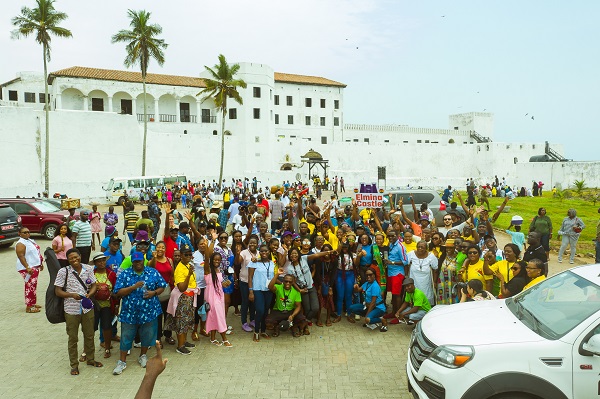Lifestyle News: Fashion, Health, Relationships & More | The Mirror - Graphic Online

Heritage double whammy
The subject matter came to the spotlight in Accra last week when practitioners in the culture and heritage space met to brainstorm and share ideas. At a workshop that included Mr Abdourahamane Diallo of UNESCO, Kojo Yankah of the Pan African Heritage Museum, Prof. Esi Sutherland and Kohain Halevi, both of PANAFEST, as well as Akunu Dake and Mr Asare Konadu Yamoah, both of the Ghana Cultural Forum, participants resolved to work on strategies to identify opportunities that will project Ghana and Africa’s credentials as a place for the promotion and celebration of black creativity, innovation and pride.
On the theme “Advancing the Anti-Racism and Anti-Discrimination Agenda as a Way to Ensure Social Inclusion and Promote Regional Integration”, the forum also offered the opportunity to launch the activities of PANAFEST/Emancipation 2023.
PANAFEST has attracted a diverse assembly of people ranging from political leaders, eminent personalities, intellectuals, business concerns, investors and tourists. Central to the celebration are major international performing and visual artistes. Needless to say that popular stars of African descent such as Isaac Hayes and Rita Marley not only came over to perform, they eventually made Ghana their home. In 1998, PANAFEST took on an additional ceremony, Emancipation Day, making Ghana the first African nation to commemorate an African diaspora event that marks the abolition of slavery.
From the presentation, next year’s PANAFEST and Emancipation events are going to involve more activities but also spread across more places in Ghana. Pikworo and Salaga, both in northern Ghana, both feature prominently. In terms of programming, theatre is back after a break in the key activities of PANAFEST. For a festival that was created by famed playwright Efua Sutherland, it cannot have the excuse of ‘no drama’ in its activities.
It would be recalled that the last time theatre featured was in the 2020 version where the award-winning play, the Prince and the Slave, was performed at Cape Coast’s Centre for National Culture much to the delight of the audience.
When in 2013 the United Nations declared 2015-2024 as the ‘’International Decade for People of African Descent’’, many communities in Africa and within its Diaspora might have yawned it away as another officious sloganeering. But recent events go to show how relevant the step was. To cap it neatly, the theme for the 10-year celebration is “People of African descent: recognition, justice and development”.
This skepticism may not be misplaced. The history and politics of the Black man’s story have become a bit too complex for one stroke of bureaucratic cosmetics to cause a difference. As America, for example, has demonstrated, racism is not stopping anytime soon and the light of black power is still not appearing at the other end of the tunnel. The foregoing and other developments notwithstanding, events seem to be coming together to generate positive discourse since the United Nations declaration.
No wonder UNESCO has pushed the agenda both globally and locally. At the forum, the Representative to Ghana, Mr Diallo, advocated strong action against racism and discrimination across the world. “Now, we must take action together to fight and deconstruct racism, to develop anti-racist policies, to fight stereotypes and foster diversity,” he said.
If there is one body that has been at the forefront of the fight against racism for the past 70 years, it is UNESCO. With their programmes such as “Routes of Enslaved Peoples Project”, the body has contributed to the development of high-level scientific networks and the support of memory initiatives on the trans-Atlantic slavery story. Whether it is the subject matter of abolition, the slave resistance or plain old racism, UNESCO’s commitment to the production of innovative knowledge can always be counted on.
In addition to UNESCO, the workshop was also supported by the Ghana Culture Forum (GCF), the Ministry of Tourism, Arts and Culture (MOTAC) and the Ghana Tourism Authority (GTA). A membership-based civil society consultative and advocacy network of cultural practitioners, the GCF has been at the forefront of mainstreaming cultural issues within the development agenda.
The forum is made up of heritage and culture activists and organisations united around a common vision of affirming the cultural foundations of development and enhancing the profile, value and impact of the cultural sector.
At the end of the day-long session, participants drafted outcomes of the workshop that reflected ideas, strategies and policies on pursuing an anti-racism and anti-discrimination agenda and on promoting regional and national integration. Out of this will evolve a clear work plan to actualise the strategies advocated.
